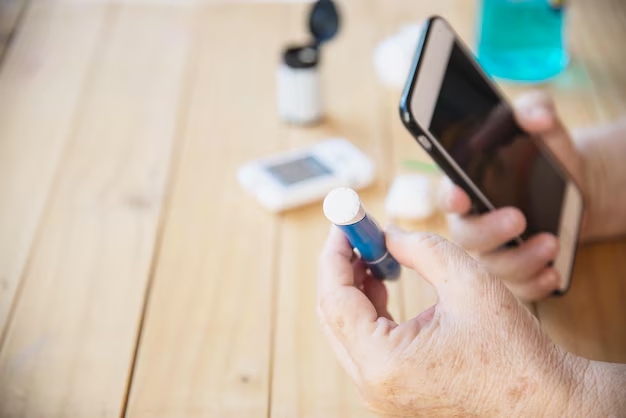Your Guide to Is Pre Diabetes Reversible
What You Get:
Free Guide
Free, helpful information about Diabetes FAQ and related Is Pre Diabetes Reversible topics.
Helpful Information
Get clear and easy-to-understand details about Is Pre Diabetes Reversible topics and resources.
Personalized Offers
Answer a few optional questions to receive offers or information related to Diabetes FAQ. The survey is optional and not required to access your free guide.
Can You Reverse Pre-Diabetes? Here’s What You Need to Know
Pre-diabetes is a wake-up call, not a life sentence. The good news is that pre-diabetes is indeed reversible. But it takes commitment and lifestyle changes. By effectively managing your weight, diet, and physical activity, you can prevent pre-diabetes from developing into Type 2 diabetes.
Understanding Pre-Diabetes
Pre-diabetes is a condition where blood sugar levels are higher than normal but not yet high enough to be diagnosed as diabetes. Statistics show that more than 84 million Americans have pre-diabetes, often without knowing it. While the numbers are staggering, it’s crucial to know that this condition doesn’t have to progress.
Steps to Reverse Pre-Diabetes
Healthy Eating Habits
Adopting a balanced diet is key. Focus on eating more whole foods, such as:
- Fruits and vegetables
- Whole grains
- Lean proteins
Avoid excessive consumption of sugar and processed foods. Monitoring carbohydrate intake is crucial since it impacts blood sugar levels directly.
Regular Physical Activity
Exercise is a powerful tool in controlling blood sugar. Aim for at least 150 minutes of moderate-intensity aerobic activity per week, such as walking or swimming. Incorporating strength training twice a week can also help regulate blood glucose and improve insulin sensitivity.
Weight Management
Achieving and maintaining a healthy weight can significantly help in reversing pre-diabetes. Even modest weight loss, about 5-7% of body weight, can have a positive impact on your blood sugar levels.
Manage Stress and Sleep
Stress and lack of sleep can negatively affect insulin sensitivity, making it harder for your body to manage blood glucose. Engage in stress-reducing activities like yoga, meditation, or deep breathing exercises, and aim for 7-8 hours of sleep per night.
The Financial Side of Reversing Pre-Diabetes
Reversing pre-diabetes doesn’t just involve lifestyle changes; managing the associated costs is also important. Here’s how you can tackle potential financial challenges.
Government Aid Programs
Programs like Medicare and Medicaid offer coverage for diabetes management, including nutritional counseling and health screenings. These resources can help reduce the financial burden on individuals taking steps to reverse pre-diabetes.
Financial Assistance and Debt Relief
For those struggling with healthcare expenses:
- Non-profit organizations often provide financial aid for diabetes care.
- Consider speaking with financial advisors about debt relief options if healthcare costs are mounting.
Credit Card Solutions
Some credit cards offer cashback or rewards on health-related purchases, such as gym memberships or groceries. Opt for cards that help you save or earn points on such essential expenses.
Educational Grants
If there are educational courses or programs available for managing pre-diabetes, look out for scholarships or grants that could reduce costs. These can provide valuable knowledge while easing the financial strain.
Stay Informed and Proactive
To successfully reverse pre-diabetes, staying informed about your condition and proactive in seeking solutions is crucial. Address financial concerns to ensure you can focus on your health without undue stress.
Financial Aid and Educational Resources
- 💸 Medicare & Medicaid: Coverage for diabetes management and counseling.
- 🏥 Non-Profit Assistance: Organizations offering financial aid for healthcare.
- 🏦 Credit Card Rewards: Cashback or rewards on health-related purchases.
- 📚 Educational Grants: Assistance for courses on health and diabetes management.
What You Get:
Free Diabetes FAQ Guide
Free, helpful information about Is Pre Diabetes Reversible and related resources.

Helpful Information
Get clear, easy-to-understand details about Is Pre Diabetes Reversible topics.

Optional Personalized Offers
Answer a few optional questions to see offers or information related to Diabetes FAQ. Participation is not required to get your free guide.


